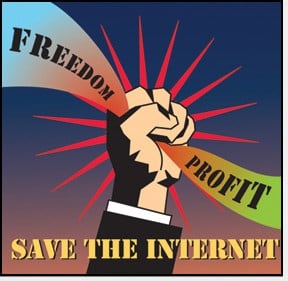The rising popularity of “Over-the-top (OTT’s)”players and social media among the people has changed the scenario of using the internet but on the other side has made the telecom companies feared of their survival. With the cost- effective online messaging and calling facility of these third party internet apps, the demand for SMS and mobile calling service has reduced manifolds which has led them to request Trai for extra charges and fees from OTT players.

Yes that’s true, the Trai (Telecom Regulatory Authority of India) has published a consultation paper for framing regulations on the OTT services such as Whatsapp, Facebook, Flipkart, etc. and is asking for comments from all the stakeholders (which include internet service providers, internet users among others) for the same. The body is trying to make a decision on the licensing and extra charges of these third party apps which in other words means no more than taming the social media under its own regulations.
Trai has also asked its stake-holders to comment on the concept of net neutrality which implies that all the websites and apps should be treated as equal and there should be no extra cost on using a particular service. This means that the telecom companies cannot block a certain website because of commercial interests and throttle speeds for a particular service.
[xyz-ihs snippet=”middle”]
Why does Trai want to implement extra charges for OTT?
Trai, on behalf of the Indian mobile operators, says that they have made large sum of investments in creating their networks while the OTT’s are absorbing their revenues using their platforms only. Due to this, the telecom companies want to implement licenses and extra charges for these apps to increase their share of profit. Acc. to Trai, the OTT messaging services (like Whatsapp, Facebook Messenger, We-chat) has led to a fall in SMS messaging traffic from 5,346 million in June 2013 to 4,367 million in June 2014, that is a decline of almost 18%. The Trai is feared for the future of telecom services in India.
Effects of Licensing
Say it’s the “big sale day” of Amazon and Flipkart and you are customer of ISP ‘BIGTELCO’. BIGTELCO can strike a deal with Flipkart for better speed on their network. Due to this you won’t be able to purchase on Amazon even if something is cheaper. According to a report in the newspaper Danik Bhaskar, the basic extra charges for google and fb would be around ₹30 each while for shopping apps like Flipkart or amazon the cost will be around ₹50. Whatsapp, being the most popular app in India will be charged nearly about ₹70. You will even have to pay extra for uploading a video on YouTube and calling on skype. The new policy will be applicable to both prepaid and postpaid users of the mobile networks.
If you are in favour of net neutrality and don’t want your mobile operator to charge extra money for Whatsapp, Facebook, YouTube, etc. then kindly submit your responses of TRAI’s twenty questions(shown below) before April 24, 2015 at advqos@trai.gov.in. You can also go to the website-https://www.change.org/p/rsprasad-trai-don-t-allow-differential-pricing-of-services-let-consumers-choose-how-they-want-to-use-internet-netneutrality and stand against it by signing the petition.

TRAI seeks responses to the following twenty questions:
Question 1: Is it too early to establish a regulatory framework for OTT services, since internet penetration is still evolving, access speeds are generally low and there is limited coverage of high-speed broadband in the country? Or, should some beginning be made now with a regulatory framework that could be adapted to changes in the future? Please comment with justifications.
Question 2: Should the OTT players offering communication services (voice, messaging and video call services) through applications (resident either in the country or outside) be brought under the licensing regime? Please comment with justifications.
Question 3: Is the growth of OTT impacting the traditional revenue stream of TSPs? If so, is the increase in data revenues of the TSPs sufficient to compensate for this impact? Please comment with reasons.
Question 4: Should the OTT players pay for use of the TSPs network over and above data charges paid by consumers? If yes, what pricing options can be adopted? Could such options include prices based on bandwidth consumption? Can prices be used as a means product/service differentiation? Please comment with justifications.
Question 5: Do you agree that imbalances exist in the regulatory environment in the operation of OTT players? If so, what should be the framework to address these issues? How can the prevailing laws and regulations be applied to OTT players (who operate in the virtual world) and compliance enforced? What could be the impact on the economy? Please comment with justifications.
Question 6: How should the security concerns be addressed with regard to OTT players providing communication services? What security conditions such as maintaining data records, logs etc. need to be mandated for such OTT players? And, how can compliance with these conditions be ensured if the applications of such OTT players reside outside the country? Please comment with justifications.
Question 7: How should the OTT players offering app services ensure security, safety and privacy of the consumer? How should they ensure protection of consumer interest? Please comment with justifications.
Question 8: In what manner can the proposals for a regulatory framework for OTTs in India draw from those of ETNO, referred to in para 4.23 or the best practices summarised in para 4.29? And, what practices should be proscribed by regulatory fiat? Please comment with justifications.
Question 9: What are your views on net-neutrality in the Indian context? How should the various principles discussed in para 5.47 be dealt with? Please comment with justifications.
Question 10: What forms of discrimination or traffic management practices are reasonable and consistent with a pragmatic approach? What should or can be permitted? Please comment with justifications.
Question 11: Should the TSPs be mandated to publish various traffic management techniques used for different OTT applications? Is this a sufficient condition to ensure transparency and a fair regulatory regime?
Question 12: How should a conducive and balanced environment be created such that TSPs are able to invest in network infrastructure and CAPs are able to innovate and grow? Who should bear the network upgradation costs? Please comment with justifications
Question 13: Should TSPs be allowed to implement non-price based discrimination of services? If so, under what circumstances are such practices acceptable? What restrictions, if any, need to be placed so that such measures are not abused? What measures should be adopted to ensure transparency to consumers? Please comment with justifications.
Question 14: Is there a justification for allowing differential pricing for data access and OTT communication services? If so, what changes need to be brought about in the present tariff and regulatory framework for telecommunication services in the country? Please comment with justifications.
Question 15: Should OTT communication service players be treated as Bulk User of Telecom Services (BuTS)? How should the framework be structured to prevent any discrimination and protect stakeholder interest? Please comment with justification.
Question 16: What framework should be adopted to encourage India-specific OTT apps? Please comment with justifications.
Question 17: If the OTT communication service players are to be licensed, should they be categorised as ASP or CSP? If so, what should be the framework? Please comment with justifications.
Question 18: Is there a need to regulate subscription charges for OTT communication services? Please comment with justifications.
Question 19: What steps should be taken by the Government for regulation of non-communication OTT players? Please comment with justifications.
Question 20: Are there any other issues that have a bearing on the subject discussed?
For more information, you can just go on to: https://netneutrality.in/ and join the fight for net neutrality.






